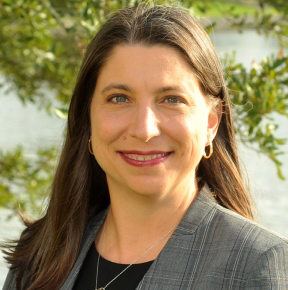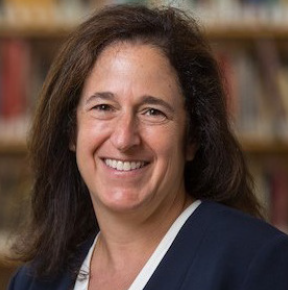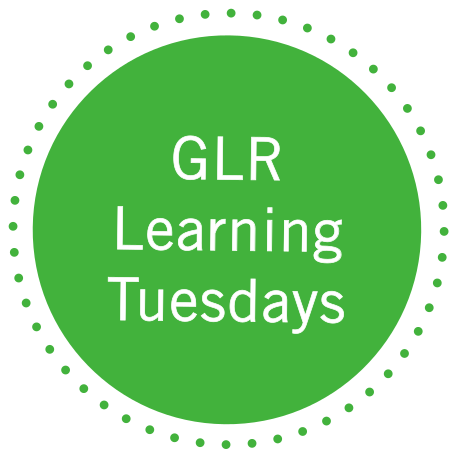
- This event has passed.
Innovations in In-School Tutoring: Updates From Research and On-the-Ground Efforts

Co-sponsored by the Overdeck Family Foundation
“Kids must become code breakers in order to ultimately become meaning makers. In other words, reading is the operating system of education, and if our kids can’t read, they can’t learn.”
Jessica Reid Sliwerski made the above statement as she explained why she founded Ignite! Reading and described how this online tutoring program is enabling high-quality tutoring at scale.
This session examined the potential of high-dosage, small-group tutoring as a proven-effective strategy for accelerating equitable learning recovery with presentations rooted in research and practice. Melanie Dukes of Overdeck Family Foundation moderated the conversation, beginning by sharing the increasing degree to which our country’s education leaders are turning to tutoring to help with learning acceleration and to address the learning loss experienced during the pandemic. With the federal government’s infusion of more than $24 billion in ESSER funds for districts to spend on evidence-based interventions such as tutoring, Dukes noted that this a critical time for school and district decision-makers to gain a deeper understanding of what makes tutoring programs effective and how to select a program that’s best positioned to meet their needs.
Dukes began by inviting Susanna Loeb, Ph.D., of Brown University’s Annenberg Institute for School Reform to set the stage by sharing research underscoring the benefits of tutoring and the seven critical elements of high-impact tutoring. Among these are a foundation of safety, equity and cohesion; a high priority on developing strong tutor-student relationships; special attention to the amount of instruction and the instructional materials used; and the use of data to understand students’ learning needs and to track their progress. Loeb shared, “Start small and [implement a high-quality tutoring program] really well for the students who really need it, then expand it out, once you have it down.”
Janice Jackson, Ed.D., of America Achieves then described her experiences implementing high-dosage, small-group tutoring while leading Chicago Public Schools and her plans to launch a national tutoring initiative that will ensure equitable access to high-quality academic supports. Jackson reflected, “It’s no secret that there are deep inequities in our education system that have long existed prior to the pandemic. All of us have witnessed those gaps widen over the past two years….We don’t want to just focus on recovery from the pandemic. This is also an opportunity to achieve greater equity and make sure that all students have access to high-quality, high-dosage tutoring post-pandemic. It should be free, it should be affordable and it should be accessible and ubiquitous in all of our school systems, and that’s just simply not the case largely due to cost and limited understanding of how to scale most effectively.”
They were joined by representatives of three innovative tutoring programs that either emerged or evolved during the pandemic.
- A.J. Gutierrez introduced the research behind Saga Education and the impact of the program on children’s academic growth, explaining how Saga’s intensive tutor training and ongoing professional development is part of its secret sauce. Said Gutierrez, “We’re seeking to make sure that high-impact in-school tutoring is a central part of school design.”
- Chanda Johnson of Zearn Math first shared her experiences utilizing high-quality programs like Zearn in tutoring programs while serving in the Louisiana Department of Education. She explained how the research-backed curriculum and digital lessons in Zearn are now being deployed as part of tutoring programs and the impact of the platform on student growth. She commented, “Tutoring is everywhere now in a way I haven’t seen before.”
- Jessica Reid Sliwerski explained how she helped launch Ignite! Reading in response to the pandemic, partnering with schools to embed daily 15-minute one-on-one, data-driven reading skills instruction with a highly trained tutor, delivered via Zoom, as part of the schools’ literacy programming. She also announced that this fall Ignite! is launching 1st Grade Promise, a 1,000-student pilot designed to ensure all participants leave first grade as fluent, independent readers ready to begin second grade.
Questions and discussion among panelists and in response to participant questions covered a variety of topics, including characteristics of high-quality hybrid or virtual tutoring models, the difference between high-impact tutoring and Response to Intervention (RTI); and approaches to researching different components of high-quality tutoring interventions when considering scale and cost effectiveness.
Panelists closed by lifting up the opportunity to expand and scale high-dosage tutoring. Johnson said, “Let’s build this together. Let’s get this right. Let’s learn from each other.” Said Jackson: “Think about how to be part of this moment and this movement.”
Panel








